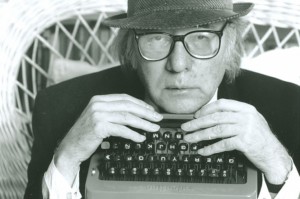Serie Ganadores Premio Cervantes: Francisco Umbral / Cervantes Prize Winners Series: Francisco Umbral
La cuarta serie de ponencias sobre los ganadores del Premio Cervantes se centra en una de las voces más incisivas de la literatura y periodismo contemporáneos en España: Francisco Umbral.
La conferencia, impartida por el Dr. Guillermo Lain Corona (profesor asociado de lengua y literatura española en University College London), te permitirá conocer otras facetas de este autor, figura clave en el ámbito sociopolítico español.
Lunes 14 septiembre, 18.30h
Instituto Cervantes de Londres
102 Eaton Square, London SW1W 9AN
La asistencia es gratuita, pero las plazas son muy limitadas. Reserva la tuya hoy enviando un correo electrónico a emb.londres.ofc@maec.es o a reservas.londres@cervantes.es, o bien llamando por teléfono a 0207 201 0752.
________________________________________
The fourth Cervantes Prize Winners series focuses on one of the most incisive voices of contemporary Spanish literature and journalism: Francisco Umbral.
The talk, given by Dr. Guillermo Lain Corona (teaching fellow in Spanish language and literature at University College London), will uncover other facets of this key figure in the Spanish socio-political scene.
Monday 14 September, 6.30 pm
Instituto Cervantes London
102 Eaton Square, London SW1W 9AN
Admission is free, but seats are very limited. Reserve yours today by emailing either
emb.londres.ofc@maec.es or reservas.londres@cervantes.es, or calling 0207 201 0752.
Escritores españoles y latinoamericanos galardonados con el Premio Nobel de Literatura | Spanish and Latin American Literature Nobel Prize Winners
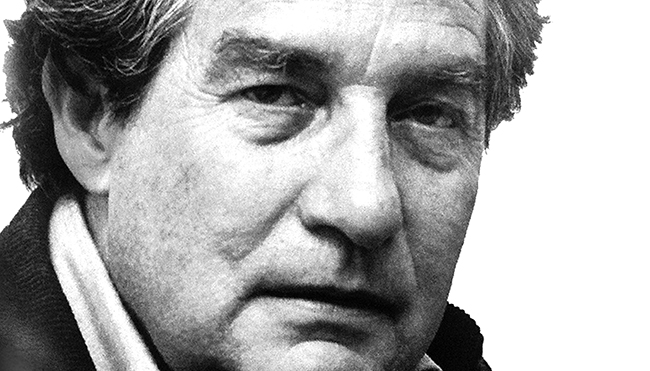
Octavio Paz y la poesía internacional
A cargo del Dr. Tom Boll, King’s College
Coordinado por la Dra. Maria José Blanco, King’s College
MAR 10 JUNIO, 6:30pm
Auditorio del Instituto Cervantes de Londres
Octavio Paz nació en México en 1914. Estudió Derecho y Literatura en la Universidad Nacional de México. Comenzó a publicar poesía durante su adolescencia, animado por Pablo Neruda. Fundó la revista de literatura Barandal y publicó su primer libro de poemas, Luna silvestre en 1933. Paz vivió en Estados Unidos y Europa recibiendo la influencia del movimiento surrealista. El laberinto de la soledad publicado en 1950 le posicionó como una figura literaria de primera nivel. En 1962, fue designado Embajador de México en India, dimitiendo de su cargo seis años después como protesta a la masacre de Tlatelolco en México D.F. durante 1968. Junto a su labor como poeta, Paz ha publicado ensayos en los que conecta la Cultura, Lingüística, Teoría de la Literatura, Historia y Política. Paz recibió el Premio Cervantes en 1981, el Premio Neustandt en 1982 y el Nobel de Literatura en 1990. Paz falleció en 1998.
Tom Boll es autor de Octavio Paz and T. S. Eliot: Modern Poetry and the Translation of Influence (Legenda, 2012). Ha publicado sobre literatura Latinoamericana y traducción, produciendo ediciones bilingües de los poetas Coral Bracho y David Huerta. Es profesor en el Departamento de Español, Portugués y Estudios Latinoamericanos en King’s College London.
En inglés
Coorganizado por la Oficina para Asuntos Culturales y Científicos de la Embajada de España en el Reino Unido y el Instituto Cervantes de Londres
Con la colaboración de King’s College London
Entrada libre reserva obligatoria reservas.londres@cervantes.es | 0207 201 0752
Octavio Paz and International Poetry
By Dr. Tom Boll, King’s College
Coordinated by Dr Maria José Blanco, King’s College
TUE 10 JUNE, 6:30pm
Auditorium del Instituto Cervantes de Londres
Octavio Paz (1914-1998) He studied Law and Literature at the National University of Mexico. Paz started publishing poems in his teens encouraged by Pablo Neruda. He founded and avant-garde literary magazine, Barandal and published his first book of poems, Luna silvestre in 1933. Paz lived in the United States and Europe and was influenced by Modernist and Surrealist movements. El laberinto de la soledad published in 1950 established him as a major literary figure. In 1962, he became Mexico’s ambassador to India and resigned six years later in protest of the Tlatelolco massacre in Mexico City in 1968. Apart form his work as a poet, Paz published essays which engage culture, linguistics, literary theory, history and politics. Paz was awarded the Cervantes Prize in 1981, the Neustandt Prize in 1982 and the Nobel Prize in literature in1990.
Tom Boll is the author of Octavio Paz and T. S. Eliot: Modern Poetry and the Translation of Influence (Legenda, 2012). He has published on Spanish American literature and translation, and produced bilingual editions of the Mexican poets Coral Bracho and David Huerta. From 2004 to 2008 he was Assistant Director of the Poetry Translation Centre. He teaches in the Department of Spanish, Portuguese and Latin American Studies at King’s College London
In English
Co-organized by Oficina para Asuntos Culturales y Científicos de la Embajada de España en el Reino Unido & Instituto Cervantes Londres
With the collaboration of King’s College London
Free admission booking essential reservas.londres@cervantes.es | 0207 201 0752
Ciclo grandes hispanistas británicos | Great British Hispanist Series
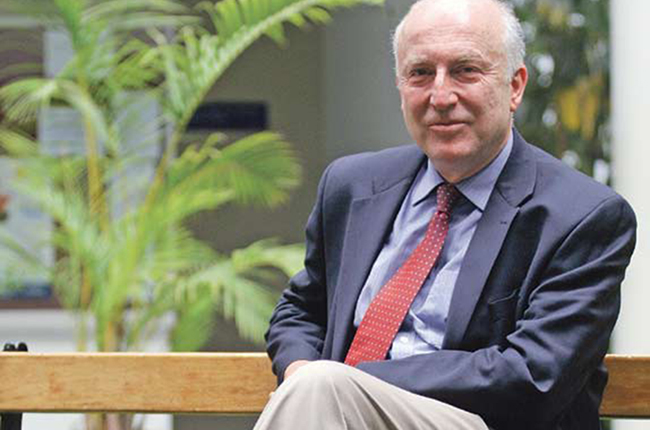
Edwin Williamson en conversación con Dr. Julio Crespo Mac Lennan
JUE 5 JUNIO, 6:30pm
Auditorio del Instituto Cervantes de Londres
Edwin Williamson, M.A., Ph.D., es profesor titular de la “Cátedra Rey Alfonso XIII de Estudios Hispánicos” en la Universidad de Oxford y Fellow de Exeter College, Oxford. Fue titular de la “Cátedra Forbes de Estudios Hispánicos” en la Universidad de Edimburgo, profesor en Birkbeck College, Universidad de Londres, y en Trinity College, Dublin. Ha sido profesor visitante en las universidades de Stanford, Cornell, Denver-Colorado, y en la Universidad de São Paulo, Brasil. Sus publicaciones reflejan su interés tanto por América Latina como por la España del Siglo de Oro. Además de numerosos artículos, es autor de The Half-way House of Fiction: Don Quixote and Arthurian Romance (Oxford University Press, 1984), traducido al español con prólogo de Mario Vargas Llosa (Taurus, 1991); The Penguin History of Latin America (2009), que ha sido traducido al español (Fondo de Cultura Económica, 2014) y al portugués; y de la biografía Borges: A Life (2004), también publicado por Penguin, que ha sido traducido a español (Seix Barral, 2006) y a otras seis lenguas. Ha sido editor de los siguientes volúmenes: Cervantes and the Modernists (1991), Cervantes: Essays in Memory of E.C. Riley, con Jeremy Robbins (2005), Autoridad y poder en el Siglo de Oro, con Ignacio Arellano y Christoph Strosetzki (2009), La autoridad política y el poder de las letras en el Siglo de Oro, con Jesús María Usunáriz (2013), The Cambridge Companion to Jorge Luis Borges (2013).
En inglés
Entrada libre reserva obligatoria reservas.londres@cervantes.es | 0207 201 0752
Edwin Williamson in conversation with Dr. Julio Crespo Mac Lennan
THU 5 JUNE, 6:30pm
Auditorium Instituto Cervantes de Londres
Professor Edwin Williamson, M.A., Ph.D., holds the King Alfonso XIII Chair of Spanish Studies at the University of Oxford and is Professorial Fellow of Exeter College, Oxford. He previously held the Forbes Chair of Hispanic Studies in the University of Edinburgh and posts at Birkbeck College, University of London, and Trinity College, Dublin. He has been a visiting professor at Stanford, Cornell and the University of São Paulo, Brazil, as well as lecturing widely in Spain, Latin America, the USA, and Europe. His teaching and publications reflect his interest in both Latin America and early-modern Spain. In addition to numerous articles, he is the author of The Half-way House of Fiction: Don Quixote and Arthurian Romance (Oxford University Press, 1984), translated into Spanish with a prologue by Mario Vargas Llosa; The Penguin History of Latin America (2009), which has been translated into Spanish and Portuguese, and the biography, Borges: A Life (2004), also published by Penguin, which has been translated into Spanish and six languages. He has edited the following volumes: Cervantes and the Modernists (1991), Cervantes: Essays in Memory of E.C. Riley, with Jeremy Robbins (2005), Autoridad y poder en el Siglo de Oro, with Ignacio Arellano and Christoph Strosetzki (2009), La autoridad política y el poder de las letras en el Siglo de Oro, with Jesús María Usunáriz (2013), The Cambridge Companion to Jorge Luis Borges (2013).
In English
Free admission booking essential reservas.londres@cervantes.es | 0207 201 0752
Camilo José Cela: Censor, novelista, escritor de viajes y editor | Censor, novelist, travel writer, and editor
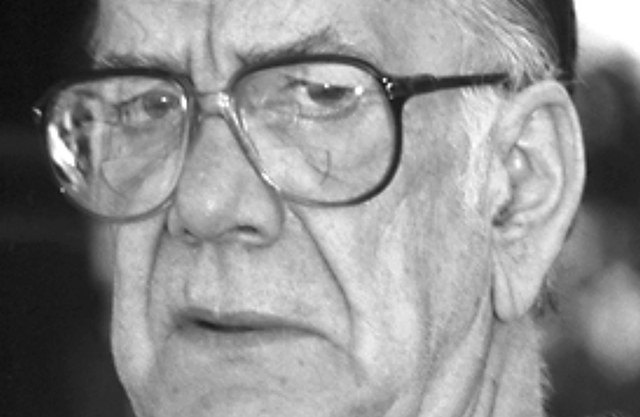
CICLO DE CONFERENCIAS
Escritores españoles y latinoamericanos galardonados con el Premio Nobel de Literatura
A cargo del Dr. David Henn, University College London
Coordinado por la Dra. Maria José Blanco, King’s College
MAR 13 MAYO, 6:30pm
Auditorio del Instituto Cervantes de Londres
Camilo José Cela (1916-2002) En los primeros años de la década de los cuarenta, trabajó como censor de revistas y en 1942 publicó su primera novela, La familia de Pascual Duarte. En 1945 comenzó a escribir la obra que la mayoría de los críticos considera su obra culmen, La colmena, publicada en 1951 en Buenos Aires. Las obras de Cela incluyen 14 novelas, relatos breves, media docena de libros de viajes, algunos de poesía y teatro, dos volúmenes de memorias, dos volúmenes sobre insultos y palabras malsonantes, y diversos ensayos sobre la literatura española y los géneros literarios. A pesar de su carácter controvertido, Cela realizó una sobresaliente contribución a la cultura española de mediados de siglo, que alcanzaría el máximo reconocimiento con la entrega del Premio Nobel de Literatura en 1989.
Dr David Henn, Honorary Reader en UCL, ha publicado artículos y capítulos de libros sobre la obra de Cela, Emilia Pardo Bazán o el Nobel portugués José Saramago. Actualmente, está terminando un libro sobre las implicaciones políticas de los libros de viajes publicados durante el régimen de Franco.
En inglés
Organizado por Oficina para Asuntos Culturales y Científicos de la Embajada de España en Reino Unido & Instituto Cervantes Londres
Con la colaboración de King´s College London
Entrada libre con reserva obligatoria
reservas.londres@cervantes.es | 0207 201 0752
LECTURE SERIES
Spanish And Latin American Literature Nobel Prize Winners
By Dr. David Henn, University College London
Coordinated by Dr. Maria José Blanco, King’s College
TUE 13 MAY, 6:30 pm
Auditorium Instituto Cervantes de Londres
Camilo José Cela (1916-2002) During the Spanish Civil War he left Republican-controlled Madrid in 1937 in order to join General Franco’s Nationalist forces. In the early 1940s he worked as a part-time censor of magazines and in 1942 published his first novel, La familia de Pascual Duarte. In 1945 he began writing the work that most critics regard as his masterpiece, La colmena which was eventually published in Buenos Aires in 1951. Cela publications include 14 novels, collections of short stories, a half dozen travel books, some poetry and plays, two volumes of memoirs, two volumes of scabrous lexicography, and many essays on Spanish literature and on literary genres. Although a controversial figure, Cela made, in an impressive variety of ways, an outstanding contribution to Spanish culture in the half century that preceded his receipt of the Nobel Prize for Literature in 1989.
Dr. David Henn, Honorary Reader at UCL, has published on the work of Cela, Emilia Pardo Bazán, Pío Baroja, Ramón Gómez de la Serna, Ramón Sender as well as on the Portuguese Nobel Laureate, José Saramago. He is completing a book on the political implications of Spanish travel writing of the Franco period.
In English
Organised by Oficina para Asuntos Culturales y Científicos de la Embajada de España en Reino Unido & Instituto Cervantes Londres
With the collaboration of King´s College London
Admission free booking essential
reservas.londres@cervantes.es | 0207 201 0752
Gabriel García Márquez: el Nobel laureado de Colombia | Nobel laureate of Colombia
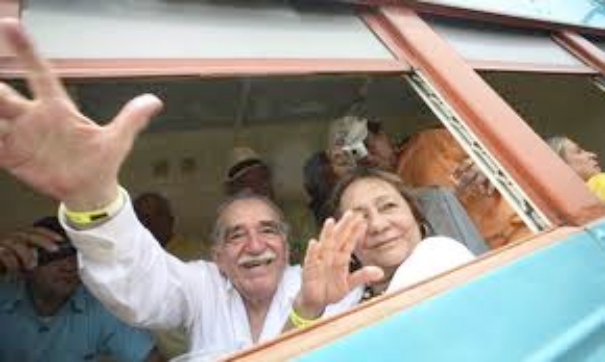
CICLO DE CONFERENCIAS
Escritores españoles y latinoamericanos galardonados con el Premio Nobel de Literatura
A cargo de Prof Stephen M. Hart, University College London
Coordinado por la Dra. Maria José Blanco, King’s College
MAR 8.03 – 6.30pm
Auditorio del Instituto Cervantes de Londres
Gabriel García Márquez, nacido en Aracataca, Colombia, el 6 de marzo de 1927, es novelista, autor de relatos breves, guionista y periodista, galardonado con el Premio Nobel de Literatura en 1982. En 1958, se casó con Mercedes Barcha; del matrimonio nacieron sus dos hijos, Rodrigo y Gonzalo. Es principalmente conocido por sus novelas Cien años de soledad (1967), El otoño del patriarca (1975), El amor en los tiempos del cólera (1985) y El General en su laberinto (1989), sus novelas cortas como El Coronel no tiene quien le escriba (1961), Crónica de una muerte anunciada (1981) y Memoria de mis putas tristes (2004), y sus relatos breves como Los funerales de la Mamá Grande y La increíble y triste historia de la cándida Eréndira y su abuela desalmada (1978). Su autobiografía, Vivir para contarla (2002), fue también muy popular. García Márquez es principalmente aclamado como creador del Realismo Mágico, encarnado en su novela Cien años de soledad, que integra situaciones de la vida cotidiana que se mueven entre lo real, lo mágico y lo sobrenatural. Es considerado uno de los escritores más importantes del siglo XX.
Professor Stephen M. Hart (Ph.D., Cambridge University 1985, Ord. al Mérito, Perú 2004 – Doctor Honoris Causa, Universidad Nacional Mayor de San Marcos, Peru, 2004 – Académico Correspondiente de la Academia Peruana de la Lengua, 2013) es Catedrático de Cine Latinoamericano, Literatura y Cultura en University College London. Ha publicado Latin American Cultural Studies (2003), A Companion to Latin American Film (2004), A Companion to Magical Realism (2005), Gabriel Garcia Marquez (2010) y César Vallejo: A Literary Biography (2013). Es editor general de Tamesis y el director del proyecto de cine documental que desarrolla en Cuba dentro de la Escuela Internacional de Cine y Televisión en San Antonio de los Baños. Actualmente trabaja en un proyecto de investigación con financiación británica centrado en la biografía de Santa Rosa de Lima. En agosto de 2010, su biografía literaria sobre Gabriel García Márquez se convirtió en el libro del mes dentro de Reaktion Books.
En inglés
Organizado por Oficina para Asuntos Culturales y Científicos de la Embajada de España en Reino Unido
& Instituto Cervantes Londres
Con la colaboración de King´s College London
Entrada libre con reserva obligatoria
reservas.londres@cervantes.es / 02072010752
LECTURE SERIES
Spanish and Latin American Literature Nobel Prize Winners
By Prof Stephen M. Hart, University College London
Coordinated by Dr Maria José Blanco, King’s College
TUE 8.03 – 6.30pm
Auditorium Instituto Cervantes de Londres
Gabriel García Márquez, born in Aracataca, Colombia, on 6 March 1927, He is a novelist, short-story writer, screenwriter and journalist who was awarded the Nobel Prize for Literature in 1982. In 1958, He married Mercedes Barcha; they have two sons, Rodrigo and Gonzalo. He is best known for his novels, such as One Hundred Years of Solitude (1967), Autumn of the Patriarch (1975), Love in the Time of Cholera (1985) and The General in his Labyrinth (1989), his novellas such as No-one Writes to the Colonel (1961), Chronicle of a Death Foretold (1981) and Memories of my Melancholic Whores (2004), and his short stories such as Big Mama’s Funeral and The Incredible and Sad Tale of Innocent Erendira and Her Heartless Grandmother (1978). His autobiography, Living to Tell the Tale (2002) was also very popular. He is acclaimed as the inventor of ‘magical realism’, as epitomized by his novel, One Hundred Years of Solitude, which integrates magical/supernatural events into the depiction of everyday reality with magical events. He is considered one of the most significant authors of the 20th century.
Professor Stephen M. Hart (Ph.D., Cambridge University 1985, Ord. al Mérito, Perú 2004-, Doctor Honoris Causa, Universidad Nacional Mayor de San Marcos, Peru, 2004-, Académico Correspondiente de la Academia Peruana de la Lengua, 2013) is Professor of Latin American Film, Literature and Culture at University College London. He has published Latin American Cultural Studies (2003), A Companion to Latin American Film (2004), A Companion to Magical Realism (2005), Gabriel Garcia Marquez (2010) and César Vallejo: A Literary Biography (2013). He is General Editor of Tamesis and the Director of a Documentary Film-Making Project which runs an annual summer school in Cuba at the Escuela Internacional de Cine y Televisión in San Antonio de los Baños, operational. His current British-academy-funded research project is a new biography of Santa Rosa de Lima. His literary biography of Gabriel García Márquez was Reaktion Books’ Book of the Month in August 2010.
In English
Organised by Oficina para Asuntos Culturales y Científicos de la Embajada de España en Reino Unido
& Instituto Cervantes Londres
With the collaboration of King´s College London
Admission free booking essential
reservas.londres@cervantes.es / 02072010752
Seminario | Seminar: 21st Century Fiction from Latin America 12/02/2014
21st Century Fiction from Latin America
Wednesday 12 February 2014
Join us for a one-day seminar to discuss current trends in Latin American fiction, and find out about new research in the field. Topics include translating Latin American fiction, the contemporary Cuban novel, digital media and new literary genres, and alternative literary formats such as the graphic novel. There will also be discussions on collecting fiction from Latin America in UK libraries, and the landscape of the UK market for Latin American fiction. The full programme and booking form are available below.
El Sabor de la Ñ: Una Combinación de Ciencia y Literatura | The Flavor of Ñ: a Combination of Science and Literature

24/10/2013 – 6.30pm
Auditorio Instituto Cervantes Londres | Auditorium
CONFERENCIA Y DEGUSTACIÓN GASTRONÓMICA
Literatura Gastronómica en español.
Entrada libre con reserva obligatoria: reservas.londres@cervantes o +44 (0)207 201 0752
Más información
LECTURE AND FOOD TASTING
The Flavor of Ñ: a Combination of Science and Literature
Gastronomic Literature in Spanish.
Admission free but booking essential: reservas.londres@cervantes or +44 (0)207 201 0752
More info
Premios Príncipe de Asturias | the Prince of Asturias award
Actividad especial
Premios Príncipe de Asturias: la contribución de estos galardones a los valores científicos, culturales y humanísticos que son patrimonio univesal.
JUE 25, 6:30pm
Auditorio del Instituto Cervantes de Londres
La directora de la Fundación Príncipe de Asturias, Teresa Sanjurjo, hablará sobre la historia de la Fundación y su principal actividad: la concesión y entrega de los Premios Príncipe de Asturias.

La Fundación Príncipe de Asturias se constituyó en la ciudad de Oviedo (Principado de Asturias-España) el 24 de septiembre de 1980, en un acto solemne que estuvo presidido por Su Alteza Real el Príncipe de Asturias, Heredero de la Corona de España, a quien acompañaban sus padres, Sus Majestades los Reyes. La Fundación es una institución privada sin ánimo de lucro cuyos objetivos primordiales son consolidar los vínculos existentes entre el Principado y el Príncipe de Asturias y contribuir a la exaltación y promoción de cuantos valores científicos, culturales y humanísticos son patrimonio universal. Como símbolo de estos fines últimos de la Fundación Príncipe de Asturias y adoptando la denominación del título que históricamente pertenece al Heredero de la Corona de España, se crearon en 1981 los Premios Príncipe de Asturias. Destinados a galardonar la labor científica, técnica, cultural, social y humanitaria realizada por personas, instituciones, grupos de personas o de instituciones en el ámbito internacional, se conceden en ocho categorías: Artes, Letras, Ciencias Sociales, Comunicación y Humanidades, Investigación Científica y Técnica, Cooperación Internacional, Concordia y Deportes.Los premios son entregados en una ceremonia anual por Su Alteza Real el Príncipe de Asturias, Presidente de Honor de la institución, acompañado por Su Alteza Real la Princesa de Asturias y por Su Majestad la Reina de España.
Desde la primera edición, celebrada en 1981, numerosas personalidades internacionales han recibido estos premios. Nelson Mandela, Sir Norman Foster, Doris Lessing, Riccardo Muti, Mario Vargas Llosa, Sebastian Coe, Michael Schumacher, Augusto Monterroso, Stephen Hawking, Rafael Nadal, David Attenborough, George Steiner, Woody Allen, Tamara Rojo y Umberto Eco son algunos de los nombres que figuran en la lista de galardonados.
En español e inglés
Organizado por la Fundación Príncipe de Asturias & Instituto Cervantes in London
Más información
www.fpa.es
Special event
The Prince of Asturias award: the contribution of these awards to the scientific, cultural and humanistic values that form part of the universal heritage of the humanity.
THU 25, 6:30pm
Auditorium Instituto Cervantes de Londres
The Director of the Prince of Asturias Foundation, Teresa Sanjurjo, will talk about the history of the Foundation and its main activity, namely the granting of the Prince of Asturias Awards.
The Prince of Asturias Foundation was founded in the city of Oviedo (Principality of Asturias, Spain) on 24th September 1980 at a formal ceremony presided over by His Royal Highness the Prince of Asturias, Heir to the Throne of Spain, who was accompanied by his parents, their Majesties the King and Queen. The Foundation is a non-profit private institution whose essential aims are to consolidate the existing links between the Principality and the Prince of Asturias and to contribute to extolling and promoting those scientific, cultural and humanistic values that form part of the universal heritage of humanity. The Prince of Asturias Awards are intended to reward scientific, technical, cultural, social and humanitarian work carried out at an international level by individuals, institutions or groups of individuals or institutions. They are conferred in eight different categories: the Arts, Literature, Social Sciences, Communication and Humanities, Technical and Scientific Research, International Cooperation, Concord and Sports. The awards are presented at an annual ceremony by His Royal Highness the Prince of Asturias, Honorary President of the institution, accompanied by HRH the Princess of Asturias and Her Majesty the Queen of Spain. The ceremony is attended by prominent personalities and is considered one of the most important cultural events on the international calendar. Many public figures have received the awards since 1981, including Nelson Mandela, Sir Norman Foster, Doris Lessing, Riccardo Muti, Mario Vargas Llosa, Sebastian Coe, Michael Schumacher, Augusto Monterroso, Stephen Hawking, Rafael Nadal, David Attenborough, George Steiner, Woody Allen, Tamara Rojo and Umberto Eco.
In English and Spanish
Organised by the Prince of Asturias Foundation & Instituto Cervantes in London
More information:
www.fpa.es/en/
Selección bibliográfica sobre El Camino de Santiago | Bibliographic selection about the Way of Saint James’
Con motivo de la conferencia que impartirá hoy en nuestro Instituto el profesor Manuel Rodríguez Camino de Santiago: el viaje sin fin, la biblitoeca ha preparado una selección de libros, guías de viaje, revistas, DVD’s e invcluso lecturas graduadas, para que las personas que estén interesadas en el tema, puedan consultarlas en la biblioteca o/y llevárselas prestadas. ¡Esperamos que les gusten!
Camino de Santiago: el viaje sin fin
JUE 28/02 – 6.30pm
Auditorio del Instituto Cervantes Londres
by Manuel Rodríguez
In the occasion of the talk that Professor Manuel Rodríguez will give here about the Way of Saint James’, the library has made a selection of books, tour guides, magazines, DVD’s, comics, and even easy readers for our students to browse or to borrow. We hope you will enjoy them!
The way of Saint James: the endless journey
THU 28/02 – 6.30pm
Auditorium Instituto Cervantes Londres
Conferencia | Lecture: Amadís en América
 MAR | TUE 27/11 – 6.30pm
MAR | TUE 27/11 – 6.30pm
Auditorio del Instituto Cervantes, 102 Eaton Square, London, SW1W 9AN
En Español e Inglés | In English & Spanish
En esta conferencia dictada en el Antiguo Colegio de San Ildefonso el 10 de noviembre pasado, el estudioso británico Hugh Thomas —autor de diversos libros sobre la cultura española como El imperio español: de Colón a Magallanes, La conquista de México y Yo Moctezuma, emperador de los aztecas—, se lanza a buscar las huellas del Amadís de Gaula y en general de las novelas de caballerías en la mentalidad de los conquistadores.
In this lecture, first given at the Antiguo Colegio de San Ildefonso on 10 November last year, the scholarly Briton Hugh Thomas – author of many books on Spanish culture including Rivers of Gold – The Rise of the Spanish Empire: from Columbus to Magellan, The Conquest of Mexico, and I Moctezuma, emperor of the Aztecs sets off in search of signs of Amadis of Gaul and of other novels of chivalry in the mentality of the ‘conquistadores’.
